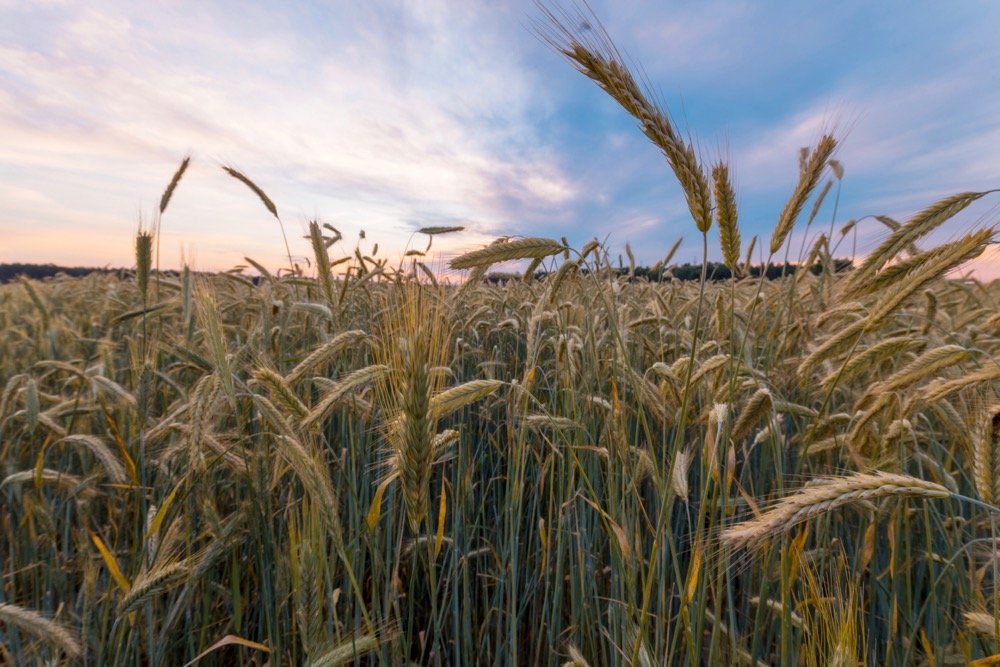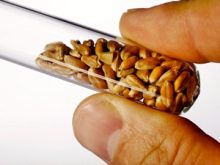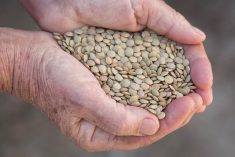Western Canadian seed growers, seed retailers and commercial farmers are being urged not to sell seed to Kazakhs or their agents because it breaches plant breeders’ rights rules.
“The basic fact is no Canadian breeder has given permission for their genetics to go to Kazakhstan,” Lorne Hadley, executive director of the Canadian Plant Technology Agency, said in an interview Thursday. “And they’re (breeders) the ones in control. So no Canadian breeder wants their varieties to go there.
“At this point it’s up to the retailers and producers of seed and even commercial farmers not to sell these products to these Kazakh agents that are trying to buy our seed. It’s awkward, but they have to respectively say ‘No, I can’t sell to you.’ They will try all kinds of commercial stories, or offers to get people to sell (to) Kazakhstan.”
Read Also

India slaps 30 per cent import duty on yellow peas
India has imposed a 30 per cent duty on yellow pea imports with a bill of lading date on or after Nov. 1, 2025.
The Kazakhs are looking for all types of crop seed, from cereals to pulses and flax and even canola.
“I can almost guarantee you they are going to be looking for anything that looks like it’s new, leading-edge — that’s what they are after,” Hadley said.
The Kazakhs appear to be monitoring social media, he said. When they see a farmer or seed grower posting about a variety they like, the Kazakhs, or their agents, contact that farmer or grower, he said.
Why it matters: Plant breeders’ rights regulations were established so plant breeders are compensated for the varieties they develop. Since Canadian plant breeders have no agreements with Kazakhstan, Canadian seed shouldn’t be shipped there.
In the spring Hadley sounded the alarm about Kazakhs trying to buy seed in Western Canada. “Last spring taught us these people are very aggressive…” he said.
Seed growers, retailers and farmers need to keep their guard up when contacted by potential seed buyers they don’t know, Hadley said. The Kazakhs have engaged third parties, including a Canadian trucking firm and food brokers, to buy seed for them, he said.
“There are times you need to be suspicious as a (seed) seller,” Hadley said. “If they offer you cash, or certified cheque or bank draft at the loading of the truck, and the truck is not going to a farm but to some other facility to be re-bagged — most of the seed appears to be going out of the country in mini-bulks.
“If they are very evasive about where it’s going but they want details about germination and purity, these are all signs that it’s likely going overseas to Kazakhstan and we just don’t want these sales to take place.”
Seed growers or farmers who are approached to sell seed should contact the seed distribution company responsible for the seed, such as Canterra, SeCan, FP Genetics and so on, he said. They can also contact Hadley via email.
SeCan has notified its seed grower members to be wary, Todd Hyra, SeCan’s business manager for Western Canada, said in an interview Thursday.
“But I think it’s important for the general farm community to be aware, whether they be grain handlers, brokers and farmers themselves… and if something doesn’t feel right phone around and ask some questions,” he said.
Most seed growers are familiar with breeders’ rights, but some farmers might not be. Under breeders’ rights in most cases farmers can save seed to grow on their farm, unless they have agreed not to, but cannot sell seed even to a neighbour never mind for export.
“When farmers get these calls it’s really tempting,” Canterra CEO David Hansen said in an interview Thursday. “They’ve got to be cautious.”
Kazakhstan is a major wheat exporter, but its lower-quality wheat usually sells to less quality-conscious buyers. Some farmers have expressed concerns on social media about the former Soviet country using Canadian wheat varieties to steal traditional Canadian markets.
“I wouldn’t be overly concerned about it,” Hansen said.
The Kazakhs are in a hurry to improve their agricultural production, Hadley said.
“This is not about a concentrated effort to steal our quality of grain,” he said. “This is about stealing the performance of our varieties.
“This is about the fact that we as seed industry and commercial producers have to respect that plant breeders get paid for their genetics. Frankly, given the range of products in my mind it’s not about quality at all.”
There is a legal way for Kazakhstan to buy Canadian crop genetics, he added.
“Our encouragement to Kazakhstan is get your seed system and your intellectual property laws up to date and then I’m sure some of the breeders will be happy to deal with you, but not under these circumstances,” Hadley said.
“If you can’t buy it at the front door, don’t go to the back alley and try to pick it up. They are essentially in the alley trying to pick it up without people knowing.”
Hyra agrees. “These (Canadian wheat) varieties have been in the works for 15 years with millions of dollars invested in them and to come over and just take them is wrong.”
— Allan Dawson is a reporter for the Manitoba Co-operator at Miami, Man.













